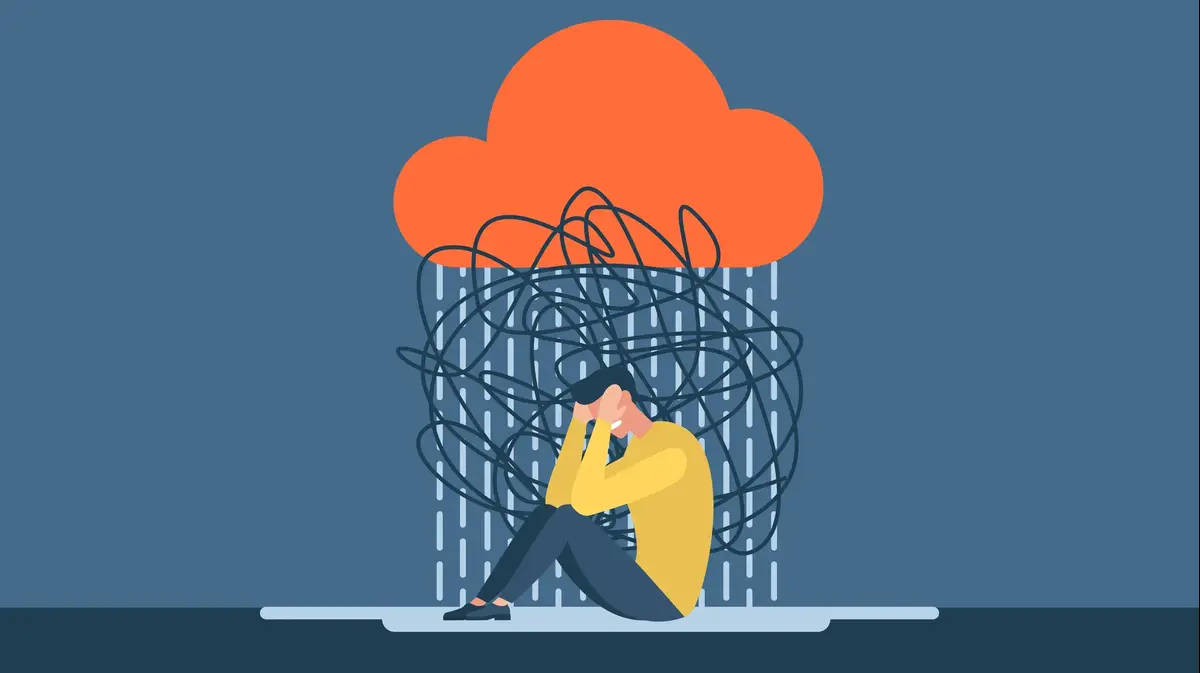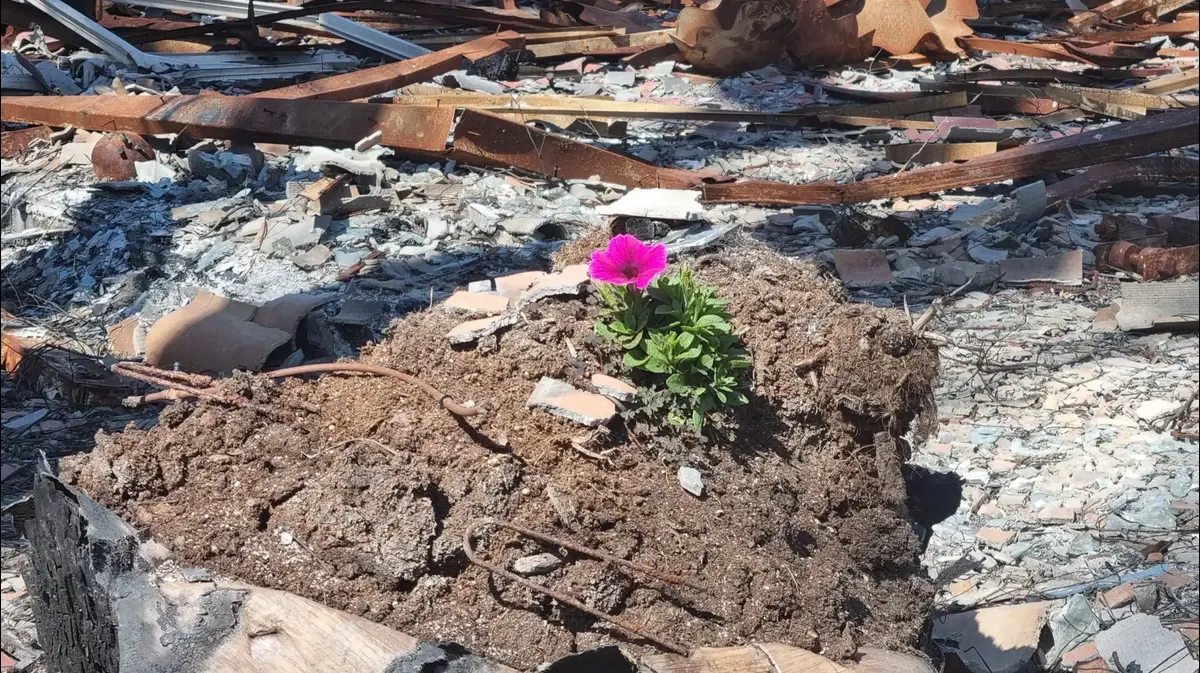Anxiety (Photo: ShutterStock)
Existential anxiety is a pretty fancy phrase. As if anxiety in itself isn't enough, it needs to be made bigger? In fact, at the base of every anxiety hides existential anxiety, but it knows how to disguise itself very successfully. Understanding existential anxiety, its underlying causes, and adopting healthy coping mechanisms will help you develop a sense of resilience and nurture your life in a way that gives it depth and a sense of fulfillment.
Existential anxiety, in its simplest sense, is a deep sense of uneasiness about the essence of existence and human essence, and it is becoming increasingly common in the modern world. More and more people are dealing with, and grappling with, existential questions about the purpose of life, the meaning of life, coping with uncertainty and challenges that the future holds.
The source of existential anxiety - death
The primary source of existential anxiety is the awareness of our finiteness, of death—an awareness that we are doomed to die and can do nothing about it. It awakens and raises our heads whenever we are confronted with basic and fundamental questions about existence, without being able to find answers to them. Understanding that our lives are fleeting and final, and that the world will follow us as if nothing happened and that our actions may have some but limited impact, can lead to severe feelings of meaninglessness, hopelessness and existential emptiness.
One can think, for example, of dealing with the climate crisis and global warming. In recent decades, and certainly in recent years, we have witnessed man-made depletion of natural resources, rising global temperatures, and devastating ecological consequences. Particularly gloomy forecasts tell us that in less than 30 years, more than two billion people will not be able to live where they live today simply because it will be too hot there and they will not survive, glaciers will melt and sea levels will rise significantly to the point of complete flooding of certain places (try to think about the Dutch and what they will do!) and in general, there will be a catastrophe here. In such a situation, it is natural to experience severe distress regarding the future of the Earth and with it the future of humanity, and our own. The sheer scale of this occurrence, combined with its complexity, can create a sense of total helplessness and leave people struggling and wondering what all this life is good for if that's what is going to happen.
But you don't have to go far to examples like the climate crisis, just think about what has been happening in Israel in recent years, and in recent months in particular. In a country that is the craziest place in the Middle East, and perhaps the entire world, where a mid-day alarm is seen as almost normal, when we are bombarded with stimuli that only tell us how many threats exist around us, along with our inability as individuals to take meaningful action that will affect it, existential anxiety is almost inevitable and no wonder people want to live in quiet and sleepy places like Australia or southern Spain when their biggest trouble is which wine to choose for dinner (spoiler, They also suffer from existential anxiety and it doesn't really help.)
Anxiety (Photo: ShutterStock)
Although existential anxiety may seem overwhelming (and it is) and may overwhelm us, there are some things you can do to deal with it better. By accepting our limitations (e.g. the fact that we will die), building resilience and finding meaning, we can mitigate its impact on our daily lives and live a fuller and more beneficial life:1. Search for meaning:
Whether life has meaning or not, and if so what it is, is one of the questions that thinkers have always occupied, and the answer depends entirely on who you ask. For the sake of simplicity, let's ignore this debate. Still, engaging in activities that align with our values and desires will evoke a sense of fulfillment and fulfillment.
Volunteering, searching for creative escapes, or contributing to causes we identify with, for example, can fill us with a sense of meaning. Whether it is the "meaning" or not, as long as we have that feeling we will be more resistant to existential anxiety.
2. Building networks and social connections: Social networks (preferably human, but also digital) and social connections have been found to be successful coping tools when it comes to anxiety in general, and existential anxiety in particular. Nurturing them over time and engaging with them and seeking help can be a significant support during times of existential anxiety. Sharing our fears and worries with people we value back offers not only comfort, but can also remind us that despite everything, and despite the sense of isolation and loneliness that characterize existential anxiety, we are not alone. In addition, we can also get different perspectives that may make it easier for us and help us see things in a slightly different way. This is especially important during existential anxiety because part of its effect is narrowing our thinking about the world, blatantly ignoring possible blind spots. Things you see from the outside usually don't see from the inside.
3. Mindfulness: No, you don't have to sit in a lotus sitting with your eyes closed and hum strange sounds to yourself (but meditation in general has a positive effect on quality of life). The importance of mindfulness in this context is the practice of being able to be present in the here and now, in what is happening right now, to reduce anxiety and not to be focused on what will or will not happen while God knows how long. Yoga can also do that. The idea is to practice mindfulness, and you'll be amazed at how easily you can do this with almost no change in your behavior. We all brush our teeth (right?), but how many of us pay attention to everything that's happening and everything they're feeling at this time? The next time you do this daily activity, try to pay attention to your physical sensations (the brush on your tongue and gums, for example, the taste of the ointment, the temperature and the touch of the water on your skin), the thoughts that go through your head during this time, the sounds around you. Try to feel your feet or ears without touching them. These are things you can do at any point in your day, no matter what you're doing at that moment, and they'll help you stretch your "here and now" muscle.
Existential anxiety is a natural, human, and perfectly normal response to any contact with life's "big" questions and the uncertainty associated with this thing being called living. Understanding existential anxiety, its origins and ways of coping with it will help us make life more bearable and a little easier. Try to focus on what is happening now and not on what will happen in the future, focus on productive and meaningful work (for you) and do not neglect social networks, all of which will prove to be especially important and build inner resilience during existential anxiety. Because it can be paralyzing, existential anxiety has learned to camouflage itself well and is not always easy to identify. It hides in a sense of emptiness, boredom, panic, disgust, distance and more, and it is not always easy to deal with it alone. Remember that you are not alone, and you can always seek treatment. Existentialist psychotherapy can be especially helpful in such situations, because the focus of its attention is precisely the difficult questions of life - meaning, coping with death and dealing with uncertainty.
- health
- psychology
Tags
- anxiety
- depression
- psychology












/cloudfront-eu-central-1.images.arcpublishing.com/prisa/IGZ7GOCXZ5GUPAQ2HWGK6Z76BU.jpg)